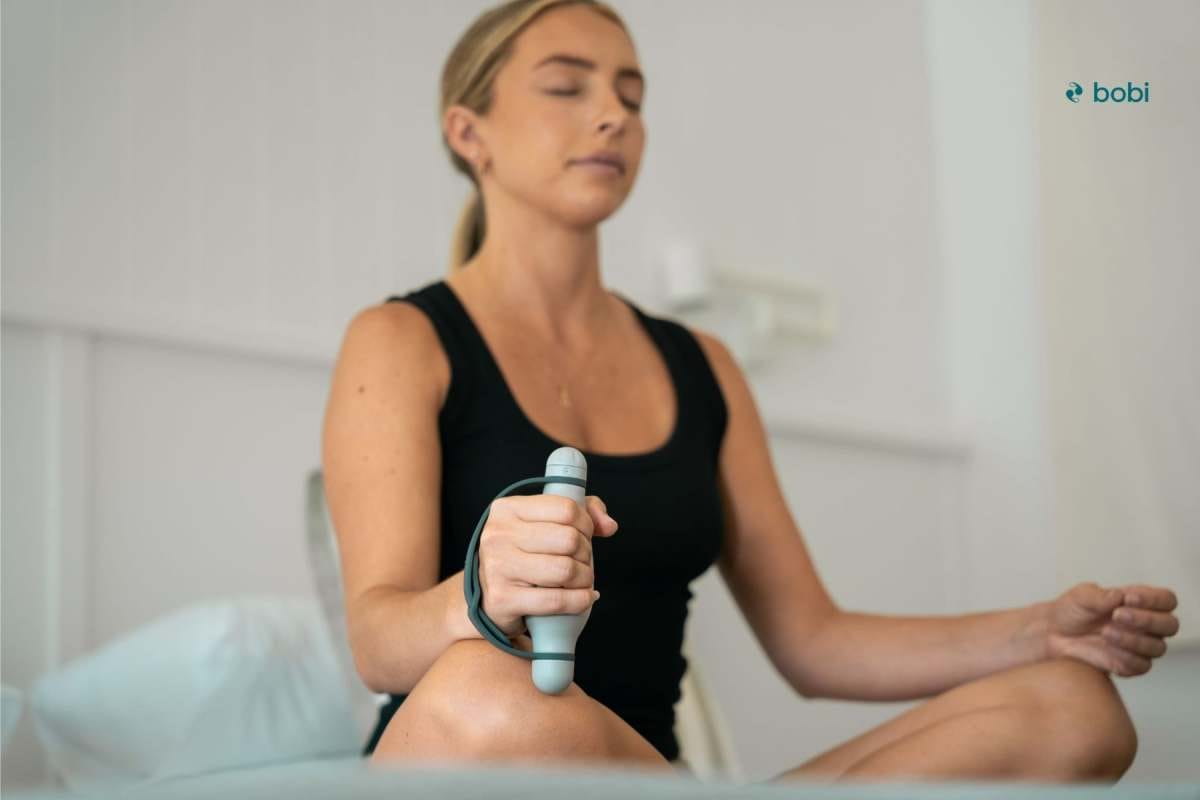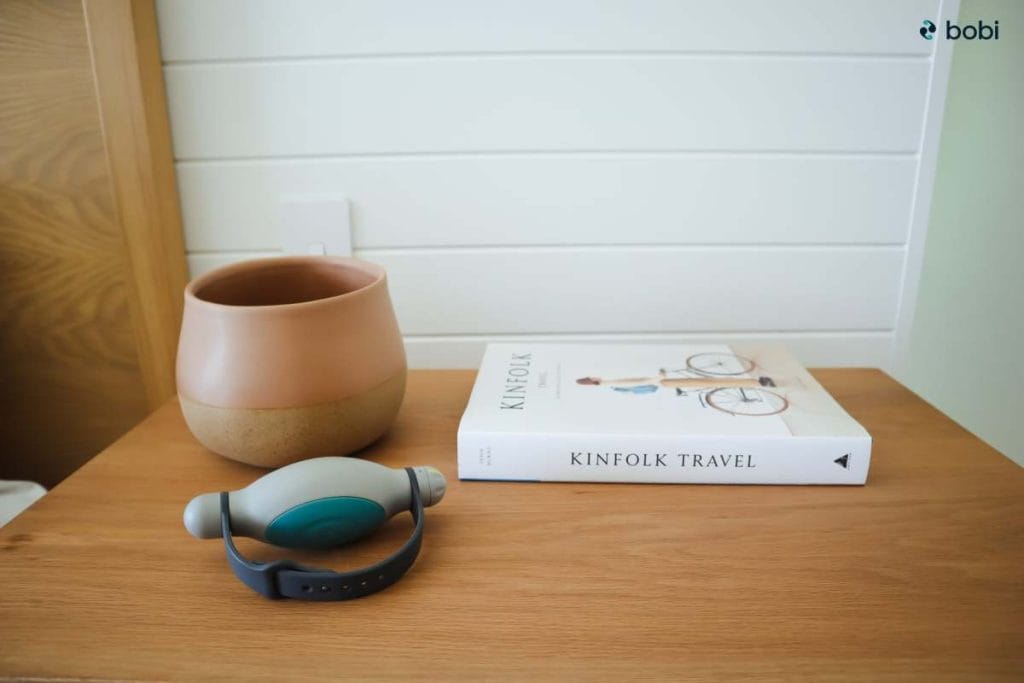
Stress seems like an integral part of our lives in this modern world. Many think that sagging on the couch and chilling out in front of the TV is a great way to relax after a stressful day. However, the truth is it does little to alleviate your stress. Rather, activating your body’s natural relaxation response with specifically designed relaxation training ensures a balance between your mind and body.
In the realm of psychological therapy, there exists a diverse array of techniques and approaches aimed at supporting clients to manage stress and anxiety. Among these, relaxation training stands out as a fundamental tool that is the most common therapeutic approach used by therapists. In this blog, we delve into the significance of relaxation training in therapy, exploring its benefits, techniques, and the underlying psychological mechanisms that make it a potent intervention. Lastly, we’ll introduce you to a relaxation device called bobi – your personal relaxation coach – designed to reduce stress and anxiety.
Importantly, psychologists recognise one crucial principle relating to managing stress or anxiety: Relaxation is a skill learnt through repeated practice of specific techniques.
Before diving into the specifics of relaxation training in psychological therapy, let’s first explore the principles of how, and why, it is widely used. Relaxation training encompasses a range of techniques designed to induce a state of physiological and psychological calmness. These techniques are rooted in the principles of mindfulness, slow breathing, progressive muscle relaxation, guided imagery, and meditation. By engaging in these practices, individuals learn to alleviate tension, reduce stress, and cultivate a sense of inner peace. Many of underlying techniques of relaxation training are centuries old.
Relaxation plays a crucial role in psychological therapy. It helps you live a productive life by treating the symptoms of stress and anxiety, improves your sleep, boosts your low mood, and enhances your overall health and well-being.
One of the primary reasons relaxation training is utilized in therapy is its ability to reduce stress levels. Chronic stress can have detrimental effects on both physical and mental health, contributing to conditions such as anxiety disorders, depression, and hypertension. Through relaxation techniques, individuals learn to counteract the body’s stress response, promoting relaxation and emotional well-being.
Anxiety disorders are among the most prevalent mental health conditions worldwide, affecting millions of individuals. Relaxation training serves as a valuable tool in the management of anxiety. It arms individuals with practical strategies to cope with overwhelming feelings of fear and apprehension. When you incorporate these relaxation techniques into your daily routine, you can develop greater resilience to anxiety triggers and experience a heightened sense of calmness.
Another key benefit of relaxation training is its role in enhancing self-regulation skills. Many individuals struggle with regulating their emotions, leading to impulsivity, mood swings, and interpersonal conflicts. Through practices such as mindfulness and slow breathing, individuals learn to cultivate greater awareness of their thoughts and emotions. It allows them to respond to challenging situations with clarity and composure.
Sleep disturbances are common among individuals struggling with psychological issues such as stress, anxiety, and depression. For such individuals, relaxation training proves hugely beneficial. It helps promote better sleep quality by calming the mind and body before bedtime. Techniques such as progressive muscle relaxation and guided imagery can facilitate the transition to a restful state, leading to more restorative sleep patterns.
Chronic pain often coexists with psychological distress, creating a cycle of physical discomfort and emotional suffering. Relaxation training is effective in managing chronic pain conditions. It treats pain in your body by reducing muscle tension, promoting relaxation, and altering pain perception. Through regular practice, individuals can develop greater resilience to pain and experience an improved quality of life.

Relaxation techniques stimulate the parasympathetic nervous system, which is responsible for promoting relaxation. Therefore, when individuals engage in practices such as slow breathing and progressive muscle relaxation, they activate this calming branch of the autonomic nervous system. Consequently, they experience physiological changes such as decreased heart rate, lowered blood pressure, and reduced muscle tension.
A 2017 review showed that heart rate variability (HRV) biofeedback, which involves using breathing techniques to influence heart rate patterns, is effective in reducing stress and anxiety.
Relaxation training encourages individuals to adopt a more adaptive perspective toward stressors and challenges. Through mindfulness-based practices, individuals learn to observe their thoughts and emotions without judgment. This enables them to reframe negative cognitions and develop a greater sense of acceptance and resilience.
Research has shown that regularly practicing relaxation techniques can induce neuroplastic changes in the brain. This regular practice results in structural and functional alterations associated with improved emotional regulation and stress resilience. These changes include increased gray matter volume in regions implicated in emotion regulation, such as the prefrontal cortex and anterior cingulate cortex.
Relaxation skills are seemingly simple to learn and practice. However, many of my clients who engage in psychological therapy report difficulty in consistently applying the skills that support stress reduction. Acknowledging this, the idea behind the world’s best relaxation device – bobi – was born. The two most commonly utilized relaxation techniques – slow breathing and progressive muscle relaxation – have been fused to form bobi.
Experts highlight various roles relaxation tools play in inducing relaxation, focusing on techniques and practices that promote mental and physical calmness.

bobi is designed as a perfect companion to support anybody to learn advanced relaxation skills. It effectively incorporates the fundamental features of advanced relaxation/stress management through:
Additionally, bobi generates alpha brain waves through repeated unilateral hand contractions. Alpha brain waves are known to enhance relaxation by reducing cortical arousal. So, bobi is your go-to personal relaxation device, which integrates all the effective relaxation techniques to alleviate your stress and anxiety, leading you to a contented life.
Relaxation training serves as a cornerstone of psychological therapy, offering individuals practical tools to manage stress, anxiety, and various other psychological concerns. By harnessing the power of relaxation techniques, individuals can cultivate a greater sense of calmness, resilience, and well-being in their lives. As therapists continue to integrate relaxation training into their treatment approaches, the profound impact of these practices on mental health and overall quality of life becomes increasingly evident. bobi is designed to be the ultimate relaxation device to accompany your training, it is designed to help individuals deal with their stress, anxiety, and other issues instantly and effectively. Get your bobi from here to enjoy your life to the fullest without fearing stress, anxiety, and other mental concerns.

Research:
Stay updated on what's happening at bobi, and all things breathing, anxiety and mental wellness.